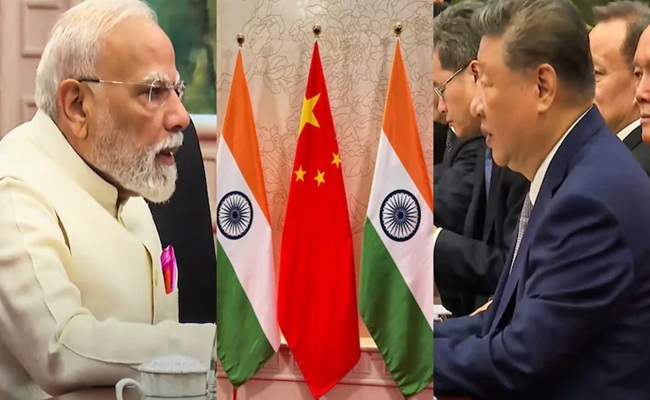In a surprising twist at the latest Shanghai Cooperation Organization (SCO) meetings, India and China have signaled a significant shift in their geopolitical relations, leading analysts to suggest that 35% of the world population can thank former President Donald Trump for this newfound cooperation. The summit, held in New Delhi, witnessed both nations moving closer together, potentially reshaping the geopolitical landscape in Asia.
The backdrop for this unexpected partnership stems from a series of tense exchanges between the two nations over the past few years. However, recent developments, including the rise of global economic pressures and the ongoing conflict in Ukraine, have prompted both countries to reassess their stances. Observers note that Trump’s administration played a pivotal role in altering the dynamics of international relations, particularly with its confrontational stance towards China, which, in turn, has influenced India to strengthen its ties with the United States.
As leaders from both countries sat down for discussions, the atmosphere was markedly different from previous meetings characterized by suspicion and rivalry. The SCO summit provided a platform for India’s Prime Minister Narendra Modi and China’s President Xi Jinping to address mutual concerns and explore opportunities for collaboration. Topics ranged from regional security to economic initiatives, with both nations recognizing the benefits of a stable partnership amid an increasingly volatile global landscape.
Experts believe that this shift could have far-reaching implications, not just for the two Asian giants but for the broader international community as well. With over a third of the world’s population residing in India and China, their cooperation could signal a new era of diplomatic engagement that might challenge the traditional Western-led order. The potential for joint initiatives in trade, climate change, and security could redefine how global issues are addressed.
Additionally, this rapprochement may be a strategic move to counterbalance the influence of the United States in the region. Both leaders appear to be keenly aware that a united front could enhance their bargaining power on the world stage. As they navigate their complex relationship, the historical context of their rivalry remains important, but the urgency of current global challenges seems to be fostering a spirit of cooperation.
While the long-term sustainability of this partnership remains to be seen, the SCO meetings have undoubtedly set a precedent for future dialogue. As India and China continue to explore common ground, the world watches closely, recognizing that the consequences of their collaboration could reshape not only Asian geopolitics but also global relations for years to come.
In summary, the developments at the SCO summit highlight a significant turning point in Indian-Chinese relations, with the echoes of past U.S. foreign policy shaping the present. If sustained, this cooperation could lead to profound changes, benefiting a significant portion of the global population and altering the balance of power in international affairs.



